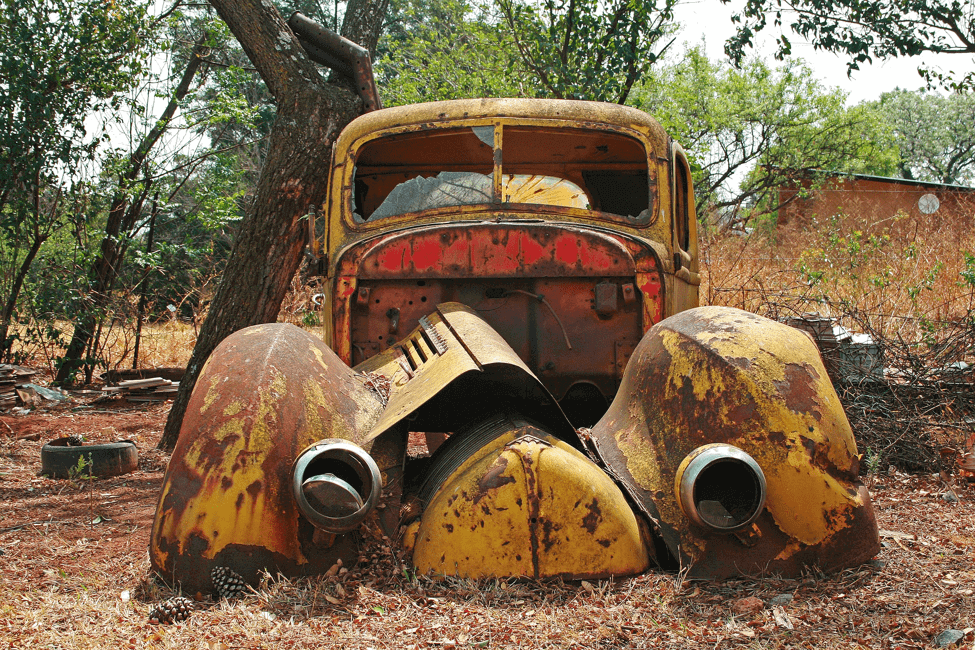Cars are convenient, they transport you from A to B much more comfortably than taking a bus. Cars are a fantastic mode of transport – when they are running well. As soon as things start going wrong they can become an inconvenient money pit, extremely quickly! Even a brand new sparkling, fresh off the forecourt car will at some point require money spent on it to fix mechanical problems and if your car is heading towards old age, you will potentially need to pay out large amounts of cash to keep it roadworthy.
Years ago car owners were much more adept at knowing their car. The running of the car, required owners to adapt to driving conditions and undertake regular maintenance, such as oil checks, battery charging and tyre pressures. Remember the old fashioned choke? If you pulled the choke out too much the engine became flooded, too little and the car wouldn’t start!
These days cars are started with the touch of a button and everything is monitored and regulated by the onboard computer. This new technology makes life much easier, however we have lost touch with essential maintenance tasks and we have come to rely on our car diagnosing any mechanical problems. What happens however if the alert systems on the car are not working properly?
Unfortunately many road traffic accidents occur due to lack of attention to car maintenance. Many a truck accident lawyer find themselves involved in court cases related to accidents caused by not maintaining a vehicle properly. Driving with bald tyres for example can have disastrous consequences caused by skidding, or a tyre blow out.
Cars that are properly maintained will remain in fully working order for much longer than cars that have been neglected, which is more economical and safer. Everyone knows a guy who has had a vehicle for years, despite a high mileage. This doesn’t happen by chance, it’s due to carrying out maintenance tasks on a regular basis.
It’s time car owners got back to basics by learning essential car maintenance tasks. The following guide will help.
Get to know your car – inside and out
Have you read the handbook that came with your car, or is it stuffed into your glove compartment, never before read? Every car is different and manufacturers compile a handbook to accompany each model of car that is released. It is there as a guide for you and will give minute detail on the features of your car, including suggested maintenance tasks. The manual will have a guide and pictures of your car engine. Which will enable you to find parts of the engine easily during essential maintenance tasks such as checking the oil.
Regular oil changes
Regular oil changes are the best way of ensuring the longevity of your car. Oil is essential for the smooth running of your car engine. If the oil is not changed regularly, or there is insufficient oil in the engine, the moving parts will start to grind against each other, causing damage.
But how do you know when it is time for an oil change? You could rely on your onboard computer, or you could schedule in an oil change after driving a certain number of miles (read your manual!). However a better way and possibly more accurate way, would be to develop a habit of checking the oil levels and condition yourself on a regular basis.
Find the dipstick in your engine, remove it and wipe with a clean cloth. Reinsert the dipstick and remove it again after a few seconds. This will give you an accurate reading of the car’s oil levels. Top up as required. Whilst checking the oil levels look at the colour and consistency. If the oil is any colour other than honey or amber, it is likely to be old and dirty. The consistency should be smooth and not gritty. Any of these signs means that an oil change is recommended – sooner rather than later.
Check tyres
Tyres are your cars contact with the road, they are what cushions your car against the hard tarmac and friction. Your tyres work alongside the cars suspension in facilitating movement and balance. Tyres are subjected to an incredible amount of wear and tear. They only have a certain lifespan and they can become dangerous if the tread is allowed to get too worn. Get into the habit of checking your tyres for wear and tear often. Get your tyre pressures checked when you fill up on fuel, ensure the air pressures are at the suggested pressures in your cars manual. Driving with the correct pressures will allow for a better grip on the road. Low pressures will affect the cars performance and high pressures could cause an extremely dangerous blow out.
Change filters, timing belts and spark plugs
These are tasks that would have been completed as a matter of course, by the driver in years gone by. If you are not confident in changing filters, timing belts and spark plugs, ask a garage to do it for you. Oil and air filters become dirty and less effective over time, causing a loss in engine power. If your car is running at a lower efficiency the gas consumption will be higher, costing you more at the pump. Spark plugs and timing belts become less efficient and can cause a huge amount of engine damage if not replaced regularly. As stated previously. Consult your car’s handbook to find out exactly when timing belts should be replaced.
Change brake fluid
Brake fluid has a tendency to attract moisture, which causes brake components to corrode and fail. It is important to have your brake fluid changed on an annual basis as this will protect the brakes and reducing the likelihood of expensive repairs.
Other maintenance tasks include keeping your car clean, inside and out. Ensure you keep your cars service history up to date by having a full service on an annual basis.




